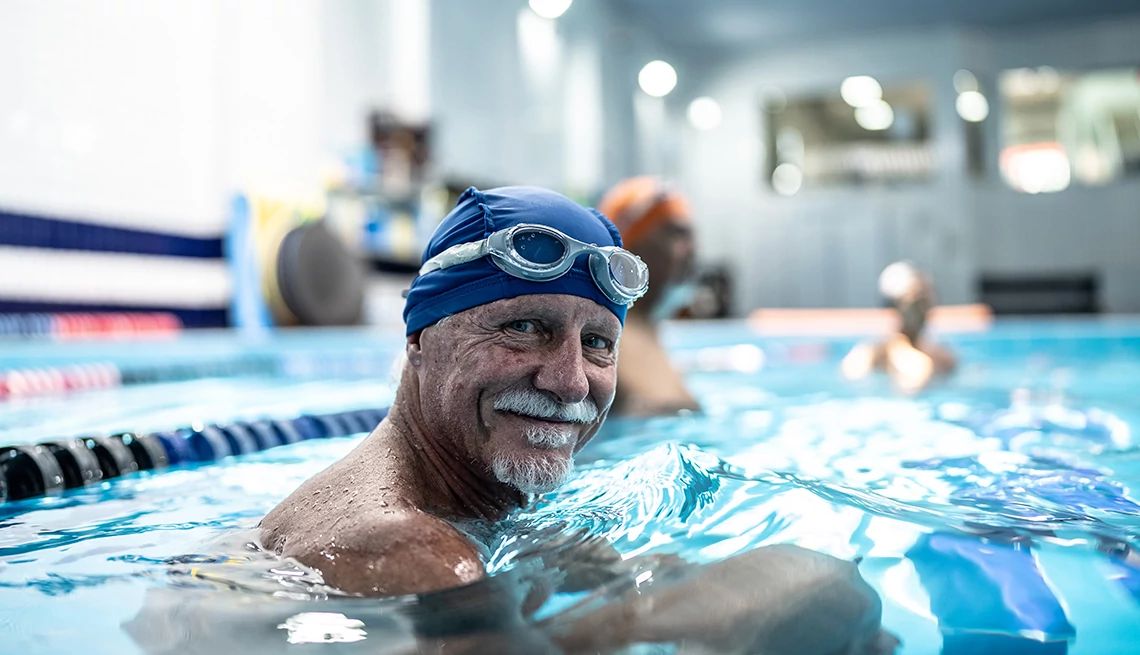Challenges


Working out in the water has lots of perks: You won’t feel hot and sweaty, there’s no risk of tripping and falling and it’s gentle on your joints. “Water is more viscous than air, so when you move your body through the water, you encounter resistance,” explains Julie See, director of education at the Aquatic Exercise Association. “This challenges your muscles, improving endurance and strength.” You’ll also feel lighter and more supported, thanks to the buoyancy of water. “It can be soothing for many people,” See says.
After 28 weeks of pool workouts — either aerobic exercises or a combination of aerobics and strength training — people improved their overall fitness as well as their cognitive test scores, according to a study of 102 adults age 65 and older published in the International Journal of Environmental Research and Public Health in 2021.
Aquatic exercise can also ease depression and anxiety and improve your quality of life, according to a review of 18 studies of adults age 60 and older published in Geriatric Nursing in 2020.
And, in a study of 40 healthy but mostly inactive adults over the age of 55, those who swam laps two to three days per week for eight weeks improved their vascular function and reduced their risk of heart disease, while the control group did not. The results were published in Frontiers in Physiology in 2023. In fact, heart health and brain health are so closely linked, AARP’s Global Council on Brain Health produced a report on the subject, “The Brain–Heart Connection.”
As an added perk, exercising in water can even improve bone mineral density, meaning it could help protect against osteoporosis, according to a systematic review and meta-analysis of 11 studies involving a total of 555 women ages 49 to 78 published in Frontiers in Physiology in 2023. The 11 studies used a variety of water-based workouts, but most involved a combination of aerobics, resistance exercises and jumping.
“We particularly recommend water-based exercise for people unable, afraid or unmotivated to conduct intense land-based exercise programs,” the researchers concluded.











More From Staying Sharp
Explore a Rail Trail
Take these steps to find and explore trails near you
Sneak in Exercise During TV Time
Banish your inner couch potato with this mini-workout
Pedal Power: Getting Started
Improve your brain health through bike riding